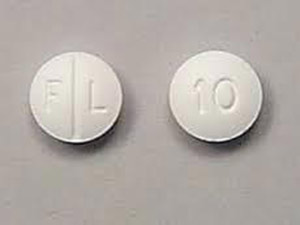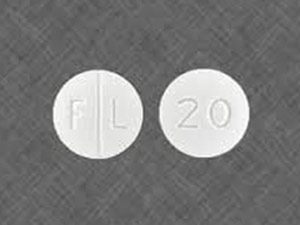Showing all 2 results
What is the use of Lexapro
Lexapro is an oral administration tablets and solution containing escitalopram oxalate as the active ingredient. It is a Selective Serotonin Reuptake Inhibitor (SSRI) available in the strength of 5, 10, and 20 milligrams escitalopram base. Lexapro is round film-coated tablets having inactive ingredients magnesium stearate, microcrystalline cellulose, colloidal silicon dioxide, croscarmellose sodium, and talc, and polyethylene glycol, titanium dioxide, and hypromellose in film coating.
Lexapro is an antidepressant belonging to a drug class of SSRIs. It affects the chemicals in the brain that are unbalanced in people with anxiety or depression.
Uses
Buy Lexapro online to treat generalized anxiety disorder and major depressive disorder in adults and children above 12 years of age.
Lexapro is helpful in the management of severe depression in adults and children between 12 to 17 years of age.
A major depressive disorder is a persistent and prominent depression or dysphoria that interferes with daily functioning. It includes the following symptoms: loss of interest in daily activities, depressed mood, insomnia or hypersomnia, significant weight or appetite changes, increased fatigue, psychomotor agitation or retardation, slow thinking, feeling of worthlessness or guilt, impaired concentration, suicidal ideas or attempts.
People also order Lexapro Generic online for the treatment of GAD (generalized anxiety disorder). Generalized anxiety disorder is uncontrolled anxiety or worries for at least six months. It is also associated with at least three of the following symptoms: irritability, restlessness, fatigue, feeling on edge or keyed up, difficulty concentrating, sleep disturbances, mind going blank, and motor tension.
Side Effects
Common side effects of Lexapro for the patients of the major depressive disorder include:
- Nervous System: dry mouth and increased sweating.
- Central Nervous System: dizziness.
- Gastrointestinal Disorder: nausea, diarrhea, constipation,
- indigestion, and abdominal pain.
- Psychiatric Disorder: insomnia, drowsiness, and decreased appetite.
- Urogenital: impotence or ejaculation disorder.
- Respiratory System: sinusitis.
Common side effects of Lexapro for the patients of a generalized anxiety disorder include:
- Nervous System: dry mouth or increased sweating.
- Central Nervous System: headache.
- Gastrointestinal Disorder: nausea, diarrhea, indigestion, constipation, and abdominal pain.
- Psychiatric Disorder: sleepiness, insomnia, abnormal dreaming, decreased appetite, or lethargy.
- Urogenital: ejaculation disorder and menstrual disorder.
- Respiratory System: yawning.
- Musculoskeletal System: neck or shoulder pain.
Dosages
Administer Lexapro only once per day, in the morning or evening, with or without food, as directed.
Major Depressive Disorder:
The recommended adult and adolescent dosage of Lexapro is 10 mg per day. The effective dosage of the medication is between 10mg and 20mg daily. Titrate the daily dose to 20mg only after a minimum of one-week treatment for adults and three weeks of treatment for adolescents.
Patients of major depressive disorder require therapy for several months or even longer. However, a doctor who is prescribing Lexapro should periodically reassess its effectiveness for individual patients.
Generalized Anxiety Disorder:
The usual initial dose for adults is 10 mg per day. Titrate the dose to 20mg after at least one week.
Generalized anxiety disorder is a chronic condition. Lexapro has its efficacy for up to 8 weeks in the case of GAD.
Cessation of Therapy:
Withdrawal symptoms appear on abrupt discontinuation of Lexapro and other SNRIs and SSRIs. Monitor patients for the symptoms of withdrawal while discontinuing therapy. It is recommendable to gradually reduce the dose rather than quitting the medication cold turkey. If withdrawal symptoms occur following the dose reduction, resume the previous treatment, and start reducing the dosage more slowly.
Precautions
Take the following precautions before starting Lexapro dosing:
- Do not use this medicine if you are allergic to escitalopram or citalopram.
- Do not take Lexapro if you are taking pimozide or citalopram.
- Do not use Lexapro 14 days before or after using an MAO inhibitor.
- Inform your doctor about all the concurrent medications, herbal products, and supplements. Some drugs interact with Lexapro to cause serotonin syndrome.
- Let a doctor know if you have or ever had seizures, liver or kidney disease, high blood pressure, stroke, heart disease, low level of sodium in the blood, bleeding or blood clot, manic depression, or drug addiction.


